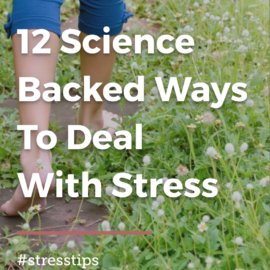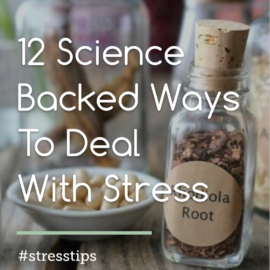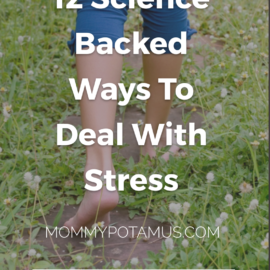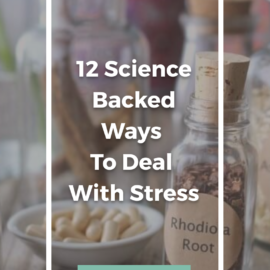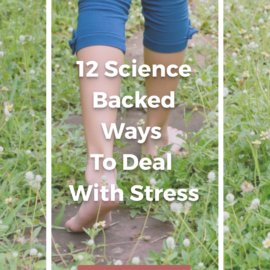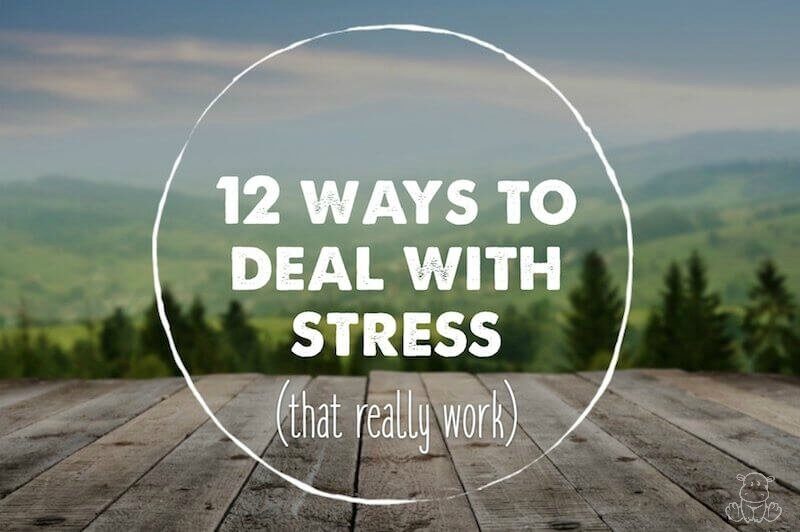
Have you ever read advice that said “Let the stress go” and just felt MORE stressed because you have no idea how to do that? Or maybe you read this post about how stress can throw off hormone balance and wondered if it’s even possible to reduce stress without renouncing civilization and moving into a yurt.
Well then, this post is for you. We’ll dive into good stress, bad stress, and science-backed ways to reset when you feel stuck.
When Stress Is Good For You (And When It Isn’t)
Stress is “not a bad thing in itself,” writes Harvard-educated physician Sara Gottfried, adding that:
under normal conditions, your body produces a brief surge of cortisol – the hormone released when you’re under stress – that is beneficial and protective and, ideally, infrequent. The stress reaction is an appropriate alarm; perhaps a friend has had a medical emergency or your house was burglarized. Once you respond and cope with the situation, your cortisol should return to normal levels, similar to the rise and fall of a tide. When your cortisol is functioning properly and proportionally, so is your alarm system, and vice versa.
However, for many women, the alarm – that cortisol surge – never turns off. The pendulum, which is designed to gently sway, gets stuck on the “alarm” side.” (The Hormone Cure)
In other words, stress works in our favor when it motivates us to respond to a specific event, like a bear chasing us.
The problem is that when we get stuck in stress mode, our bodies “steal” a hormone called pregnenolone to make extra cortisol. Pregnenolone is often called the “mother hormone” because it’s used to make all kinds of hormones – estrogen, progesterone, testosterone, DHEA, and of course cortisol.
Consistently overproducing cortisol leaves little pregnenolone left to produce other essential hormones, thus leading to hormone imbalance. Although they can vary, some symptoms of hormone imbalance are:
- PMS
- Anxiety/depression
- Difficulty maintaining a healthy weight
- Fatigue
- Acne
- Digestive problems
- Increased appetite (often in the form of sugar cravings)
- Trouble sleeping
- Irregular cycles
- Low libido
- Feeling easily overwhelmed or burned out
When stress causes imbalances within the body, we need to manually reset the alarm.
How To Deal With Stress Naturally
There is no one “right” way to deal with stress. Some people love meditation . . . and some people find meditating while little humans crash things around them a little counterproductive.
Fortunately, there are lots of ways to support the body in stressful times and/or reset the stress response, and many of them work together synergistically.
Some are like a hard reboot with immediate effects, while others have a cumulative effect over time. Don’t underestimate the ones that take time, though. They can be incredibly helpful in increasing our overall resilience to stress.

1. Adaptogens
If caffeine is like a map from point A (sleepy) to point B (alert), adaptogenic herbs are more like a GPS system that figures out where you are and helps you get where you need to go (balanced). They have a grounding, centering effect that supports resilience in times of stress.
Here’s a beginner’s guide to using adaptogens, and here are some specific ones worth considering:
- Ashwagandha
- Chaga Mushroom
- Cordyceps Mushroom
- Eleuthero
- Holy Basil
- Licorice Root – This particular herb is considered helpful for individuals who have low cortisol, but not high.
- Maca
- Panax Ginseng
- Reishi Mushroom
- Rhodiola
Adaptogens work together synergistically, meaning that they tend to work better together than alone. They can be taken as a tea such as this Happy Adrenal Tea, or a tincture like this Adapt + Thrive recipe.

2. Beneficial Stress (Let Me Explain)
MORE stress doesn’t seem like the logical path to de-stressing, but sometimes it can be. Chronic stress is never a good thing, but small doses of short-term (acute) physical stress can have a positive effect.
This type of beneficial stress – called hormetic stress – causes a temporary spike in cortisol, but after it’s over the body relaxes and stress hormones drop to levels far below the previous baseline.
Why does this work? Because our bodies stress response system is designed to deal with mostly physical threats – tigers chasing us, being caught in a blizzard, etc. Chronic stress doesn’t have clear boundaries that let the body know when the threat is over and it’s safe to relax, but if you introduce a manageable physical stress and then remove it, your body gets the “threat is over” message and reboots.
The important thing is to remember that it must be manageable. Exercise is a form of hormetic stress, but too much exercise can over-tax the body if you’re already in a stressed state.
My favorite types of hormetic stress are infrared sauna therapy and exercise. If you’re new to sauna therapy, here are some tips for getting started, plus answers to frequently asked questions.
3. Sleep
Deep, slow-wave sleep is our natural “repair mode,” making it essential for stress recovery. Animal studies have shown that restorative slow-wave sleep increases after stressful events . . . at least in optimal circumstances. (1)
Blue light from computers screens, t.v.’s and phones can significantly reduce slow-wave sleep during our first sleep cycle of the night, but there are ways to mitigate the effects without giving screen time up.
Here are some steps you can take to optimize your circadian rhythm for sleep.

4. Earthing
Research suggests that physical contact with the ground – often called earthing – helps balance cortisol levels, calms our nervous system, reduces inflammation, and supports immune function.
It’s free and available everywhere. Here’s an explanation of why it works and how to get started.
5. Breath Work
It’s only recently that we Westerners have learned that breathing unilaterally through the right nostril activates the sympathetic nervous system and left hemisphere of the brain, and that unilaterally breathing through the left nostril activates the parasympathetic nervous system (the relaxation response) and right hemisphere of the brain.” – Dr. Sara Gottfried, The Hormone Cure
Here’s a video tutorial that explains what alternate nostril breathing is and how to do it.
Another approach I like is called Buteyko Breathing. Originally developed by Dr. Konstantin Buteyko to help asthma sufferers improve respiratory function, it has since been found very helpful for reducing stress while restoring the body to a parasympathetic state.
If you’d like to learn more, this page explains why most of our “deep breathing” techniques may not actually be the best approach, and this video explains how to start with Buteyko Breathing.

6. Meditation
According to Harvard neuroscientist Sara Lazar, meditation not only reduces your stress . . . it changes your brain for the better.
My husband likes the Calm meditation app, but I’ve heard good things about Headspace and 10% Happier, too.
I’ve also used neurofeedback, which has very similar benefits, and a home device that helps your brain attune to alpha waves using brainwave entrainment.
7. Laughter
Dr. Lee S. Berk – who is a preventive care specialist and psychoneuroimmunology researcher at Loma Linda University and director of the molecular research lab at SAHP, Loma Linda – and his colleagues “were the first to establish that laughter helps optimize the hormones in the endocrine system, including decreasing the levels of cortisol and epinephrine, which lead to stress reduction.” (source)
Ready to try it out? Okay, read this and laugh until you cry. (Note: There is some language, so if that bothers you watch a funny movie instead.)
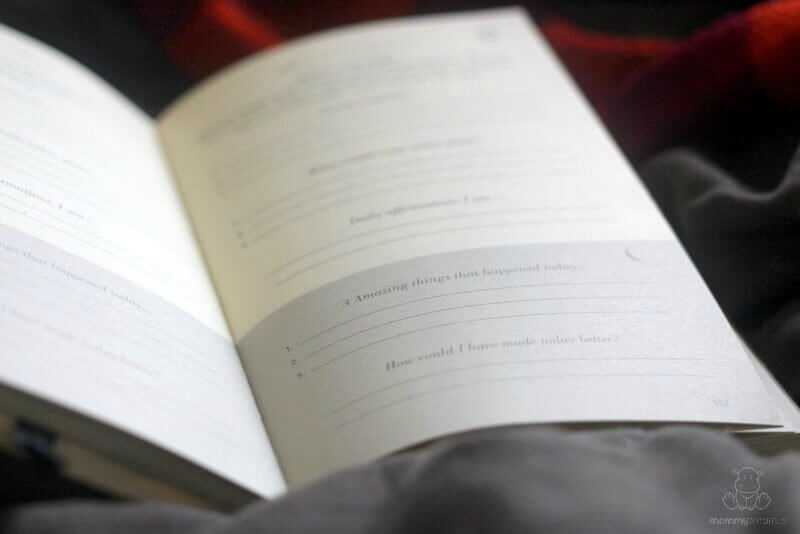
8. Journaling
As I mentioned here, happiness researchers – yes, real academic researchers, neuroscientists and even economists – are now studying how to increase happiness.
One thing they’ve found is that keeping a gratitude journal lowers stress levels and improves sleep. Here are some other benefits of keeping a gratitude journal.
Another similar practice that is fun to do as a family is this happiness jar.
9. Tapping
Earlier this year I came across a book of poetry my dad wrote right before I lost him at age eleven. When I couldn’t bring myself to read it, I realized that although I thought I’d come to terms with his loss, I had unresolved trauma that I needed to work through.
When other methods didn’t seem to help a friend suggested that I read The Tapping Solution. When I finally picked up a copy, I discovered that there’s a lot of research that supports its effectiveness.
David Feinstein, PhD, who has served on the faculties of The Johns Hopkins University School of Medicine, Antioch College, and the California School of Professional Psychology, has published several papers that delve into the science behind tapping and why it works. The Tapping Solution also does, but in a more user-friendly way that I recommend starting with.
10. Magnesium
Sometimes called “The Original Chill Pill,” magnesium helps to balance cortisol (stress hormone) levels in the body. I dive into the many benefits of magnesium here, and you can find a guide to magnesium supplements here.
11. Aromatherapy
Here are six essential oils that have been shown in studies to have a positive effect on our stress response.
Although they can be applied topically, several of them have the potential to irritate skin or cause a phototoxic reaction unless used in very small amounts. They are all considered safe when diffused into the air, though, which is actually a better method for getting them into the bloodstream quickly.
(Diffusing allows the essential oils to come into contact with respiratory mucous membranes, which are thinner than skin and therefore absorb the oil more quickly.)
12. Hang out with your best friend
This one is my favorite so I saved it for last: According to this study, being around your best friend during stressful times decreases your cortisol levels.
I know this is personally true for me, and it seems to be the key to many long-term benefits, too. Close friendships are one of the primary attributes of Blue Zones, which are areas of the world that have the highest percentage of centenarians (people that live to 100).
Next in this series: Balancing hormones naturally
Resetting the stress response is one of the most important things we can do to balance hormones, but there are steps as well. In the next post in this series – how to balance hormones naturally – we’ll cover my top six.
What’s your favorite way to de-stress? Please share it in the comments below!
This article was medically reviewed by Dr. Scott Soerries, MD, Family Physician and Medical Director of SteadyMD. As always, this is not personal medical advice and we recommend that you talk with your doctor.
Article sources:
1. Kamphuis, Jeanine et. al. (2015) Deep sleep after social stress: NREM sleep slow-wave activity is enhanced in both winners and losers of a conflict. Retrieved from https://www.sciencedirect.com/science/article/pii/S0889159114006114
2. Deans, Emily (2011) Magnesium and the Brain: The Original Chill Pill. Retrieved from https://www.psychologytoday.com/us/blog/evolutionary-psychiatry/201106/magnesium-and-the-brain-the-original-chill-pill





